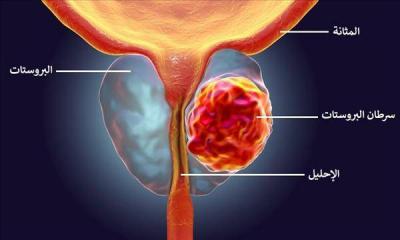A study has shown that being overweight between the ages of 17 and 29 increases the risk of death from prostate cancer by nearly one-third. Obesity leads to elevated levels of insulin-like growth factor-1 (IGF-1), a hormone involved in cell growth and development, which scientists believe may contribute to the disease. While people cannot change risk factors like age and family history, experts suggest maintaining a healthy weight to reduce the chances of developing prostate cancer.
Although many prostate cancers grow slowly and may not cause harm during a person's lifetime, others are more aggressive, spreading quickly outside the prostate and becoming harder to treat. Researchers wanted to examine whether obesity is a risk factor for different strains of the disease. They analyzed data from 258,477 men in Sweden who had their weight measured at least three times between the ages of 17 and 60, from 1963 to 2019. During this period, 23,348 participants were diagnosed with prostate cancer, and 4,790 men died, with an average age of 70 at diagnosis, according to results presented at the European Congress on Obesity.
The researchers found that weight gain was highest early in life among the study group, with an average increase of 1.6 pounds annually from ages 17 to 29, 0.75 pounds from ages 30 to 44, and 0.5 pounds from ages 45 to 60. Dr. Marissa da Silva from Lund University in Sweden stated that the findings suggest preventing weight gain in youth may reduce the risk of aggressive and fatal prostate cancer.
Simon Grieveson, assistant director of research at Prostate Cancer UK, noted that "many studies have suggested a potential link between obesity and aggressive prostate cancer. While these findings are intriguing, further research is needed to fully understand the biological connection between obesity and prostate cancer—and, importantly, how we can use this information to improve outcomes for men."




